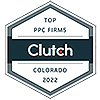 There was an enormous amount of hype around the roll out of the latest Penguin update, named Penguin 2.0. This update rolled out May 22nd. So Penguin 2.0 has happened. Many have talked about the early results and how it’s affected slightly less than 2.3% of search engine results (according to Matt Cutts’ blog) or how it’s affected big brands. Optimizers all over the web are writing obituaries about the aggressive link building tactics that have long been the anchor of successful SEO, but have now been relegated to the trashcan.
There was an enormous amount of hype around the roll out of the latest Penguin update, named Penguin 2.0. This update rolled out May 22nd. So Penguin 2.0 has happened. Many have talked about the early results and how it’s affected slightly less than 2.3% of search engine results (according to Matt Cutts’ blog) or how it’s affected big brands. Optimizers all over the web are writing obituaries about the aggressive link building tactics that have long been the anchor of successful SEO, but have now been relegated to the trashcan.
All the analysis on linking strategies is certainly important and time worthy to dig into, but as with much of SEO, my fear is that businesses and marketers overlook a new, potentially more revealing trend in search engine optimization that has surfaced as a by-product of Penguin 2.0 and get too caught up in digging into eccentricities.
In sifting through lots of analysis and reading a ton of blogs on the subject, it’s clear to me that the sites that have increased their rankings after the the update are those that have proven authority and have had a consistent brand. Yes, branding has become an emerging ranking factor.
But why? Google’s algorithms place a premium on authority and authenticity. For years now, millions of websites have optimized for key phrases for ranking (many over-optimized with black hat techniques) and Google is constantly looking for ways to show relevance and authority by trying to prove the authenticity of a site and what it’s corresponding rank should be. Google’s goal has always been to provide their users the best possible search experience. It does this through requiring the search results to reward established, authoritative brands top results. The most credible way Google can do this is by valuing authenticated popularity. This is exactly why Google+, Google authorship tags, social signals and rich snippets are now a big part of the SEO equation.
For the Love of Search, Build a Strong Brand for Yourself
It’s pretty clear that if you want to rank higher and drive real traffic to your site, you must build your online brand. By brand building, I’m not speaking of ESPN or Nike. I mean building your brand as it relates to other sites in your industry and geography that are all jockeying for search engine placement. You’re a plumber trying hard to rank for your best keywords. Your company will likely never have the brand recognition of Pepsi, but you can build an incredibly strong internet brand for your local market. The stronger your brand, the higher you will rank.
Google continues to try hard to recreate the “real” world and make it applicable online. If you’re trying to build your businesses brand in a local offline marketing flurry, you would place ads in the newspaper and local magazines, receive praise from local celebrities, appear in radio and TV ads,etc. You would do things that would create some buzz and brand recognition for your target market.
Google is attempting to achieve that same thing. The spiders are attempting to collect everything they can about your company in order to establish authority and relevancy. These include your brand, your website content, reviews of your company, video content, press releases, PDF’s, presentations, articles, webinars, etc. The more varied the content and the more frequently that content is found as quality and authoritative from your brand, the better chance the spiders will authenticate the relevancy of your company and your brand. Therefore, by defining your brand as an industry leader, the better your rankings will be.
Your focus should be less on the volume of backlinks to your site and more on the variety and distribution of your content onsite and offsite. Worry about how to get your content on relevant sites and guest blogs, your company presentations on SlideShare, your company’s social signals, getting customers to review you and your videos found and shared on YouTube and Vimeo. Create compelling content and find ways to horizontally distribute that content throughout the web. This focus will have more authority and create branding citations that will prove your relevancy and boost your rankings in this new online world.
How This Will Impact Local SEO
In Local SEO, we speak a lot about the importance of accurate local citations, or directory listings. The more often spiders find your consistent and accurate name, address and phone number published with the appropriate keywords, the better your local rankings will be. As important as this is, you should also be thinking about how you can create and distribute quality, relevant and authoritative content to local, reputable websites. This will create natural backlinks to your site and while some will be follow through and some no follow, it’s more important to focus on relevancy and branding.
A Penguin at the Door
Those of us in the industry use buzz phrases like “content marketing” and “social marketing” and talk about them as if they are the new SEO. The truth is, SEO is constantly evolving. Currently, the focus is on authority and authenticity and that relates directly to your branding. However, it could change at any moment, I’ve seen it! We have to rely on doing SEO efficiently and be willing to adapt. The penguin is knocking. Focusing more on your brand and great content creation, your SEO efforts will uncover new acquisition channels and continue to do the right thing for your company. This way, you’ll continue to improve your rankings, as well as drive relevant direct traffic and potential leads from valuable sites you may not have even noticed before. After all, isn’t that what all the SEO fuss is about in the first place? Driving your bottom line, not your vanity.
The intricacies of SEO constantly change, but the basics have always remained constant. In fact, with Penguin 2.0, the basics are likely to make you even more effective. I have been saying for years, “build a well designed and easily navigated site that has quality content and that shows you are the subject matter expect in your field and Google will reward you.” Ok, so truth be told, I stole and expounded upon what Matt Cutts said years ago, but who’s keeping score?
Google has always policed the fringes, those taking advantage of the system, and tried to improve search results to mimic what we would care about in the “real” world. Work hard to build a great site that is easy to move around in and find what you want. Create great content that shows your user you know what you’re talking about and that you are an authority on the subject matter and everything else will fall into place. People will find your site, you will get new customers and retain old ones and your business will grow. Here is a great video from Matt Cutts that hits upon some of the things I spoke of here and talks about what Google’s upcoming plans are.





 8055 E Tufts Ave Ste 240
8055 E Tufts Ave Ste 240




